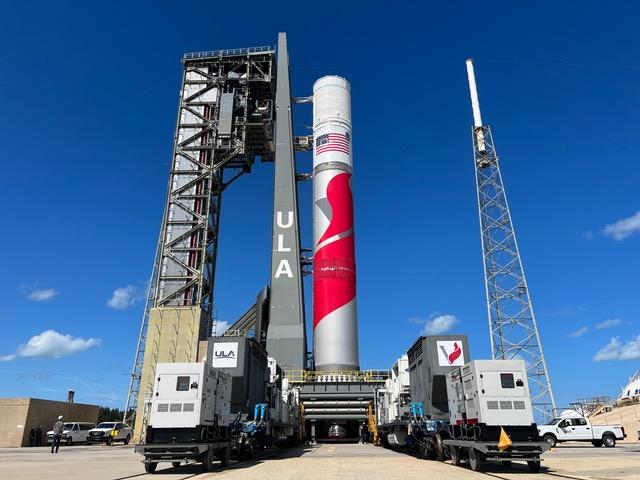
WASHINGTON — The Air Force Research Laboratory (AFRL) has postponed the launch of its Navigation Technology Satellite-3 (NTS-3) to next spring. The delay is a result of United Launch Alliance’s (ULA) Vulcan Centaur rocket experiencing a delayed debut due to a testing anomaly discovered in March.
Originally scheduled to fly at the end of this year on Vulcan’s first national security mission, USSF-106, the NTS-3 launch will now take place in May or June of 2024, according to program manager Arlen Biersgreen. In light of this setback, AFRL is exploring options for experimentation and test activities to offset the impact of the delay and conduct risk reduction for the on-orbit demonstration.
Denver-based ULA requested the date change late last month, leading to the postponement of AFRL’s positioning, navigation, and timing (PNT) demonstration. The L3Harris-built NTS-3 is AFRL’s first major PNT demonstration in almost fifty years, with the previous NTS satellite launching in 1977 and contributing significantly to the GPS program.
As the NTS-3 satellite awaits its ride to space, it is making steady progress through its integration and testing phase. AFRL aims to address concerns about the vulnerability of GPS satellites to signal jamming and other threats by conducting the experiment. The satellite will test navigation capabilities that could enhance the Space Force’s GPS satellites or support future programs. These technologies include steerable beams for regional coverage, a reprogrammable payload for in-orbit upgrades, and protection against signal jamming.
Once NTS-3 is in orbit, AFRL plans to conduct a one-year experiment to explore how new satellite configurations can strengthen the Space Force’s PNT capabilities. The insights gained from this work will inform an ongoing study by Space Systems Command, the service’s acquisition arm, on the possibility of using a mix of small and large satellites in various orbits to provide a more resilient capability for military and civilian users.
NTS-3 has already been involved in military exercises, notably participating in the Army’s PNT Assessment Exercise in August last year. As AFRL continues to work towards its navigation technology objectives, the delay in the launch offers an opportunity to refine and optimize the satellite’s capabilities before it embarks on its critical mission to enhance positioning, navigation, and timing for vital U.S. infrastructure and military operations.
Source : C4irsnet
Read More :
PacifiCorp Faces Existential Threat: Wildfire Verdict Shakes Utility Industry
Annabelle Ham dies at 22 : Tragic Passing of a Social Media Personality
Gigi Hadid’s Arrest in Cayman Islands: Thirst Traps and Legal Tangles




